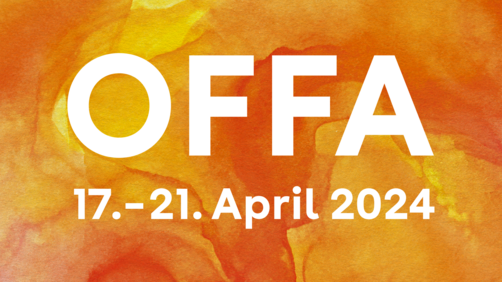Events - 09.05.2014 - 00:00
Millennials call for courage
Young talents regard decision-makers as too obsessed with status. This was revealed by the Global Perspectives Barometer 2014. The winners of the Wings of Excellence essay competition discussed the results on the occasion of the 44th St. Gallen Symposium.
9 May 2014. Tomorrow’s executives concede that today’s decision-makers work hard, but they also consider them to be averse to risk and excessively concerned with their status. This was revealed by the Global Perspectives Barometer 2014 study, which has been published by the 44th St. Gallen Symposium in conjunction with the GfK Verein.
Criticism of wrong decisions
A great number from among the 876 interviewees from 107 countries would like to see decision-makers in politics, trade and industry display more strategic far-sightedness and social responsibility. The survey was also about the challenges in education systems and the characteristics of attractive employers.
This critical view expressed by the Leaders of Tomorrow is also reflected in the fact that 61 per cent of interviewees indicated that governments and administrations “often” fail when it comes to making decisions regarding important issues. Entrepreneurs and managers do not appear in a better light, either: almost half of the interviewees regard their decisions as often wrong.
Learning with practical relevance, working with personal responsibility
The young participants in the St. Gallen Symposium were also asked to assess their own generation, the “millennials”: they said that they were more individualistic than the older generation, more entrepreneurial, but, as it were, more self-involved and materialistic. In comparison with the older generation, however, the Barometer reveals that the interviewees are more trustworthy and less obsessed with status.
Only nine of the approx. 880 interviewees indicated that they had encountered no problems at the start of their careers or in their jobs. Many of them wish for a more practically relevant education at the universities and complain about obsolete methods and subject-matter. According to the survey, young people appear to regard the salaries, job security and perks such as company cars as less important. What counts for them is a working life worth living: varied, demanding and characterised by personal responsibility.
The ideas of the Wings of Excellence prize winners
The three winners of the 26th St. Gallen Wings of Excellence Award put forward similar arguments in their discussion with Al Jazeera host Riz Khan. The three young talents considered political commitment to be just as important as entrepreneurial action. Ashwinikumar Singh (1st prize) pleaded for more courage for a change of obsolete structures, also with regard to the gender issue. More women decision-makers would be good for India, he emphasised.
The Australian Martin Seneviratne (2nd prize) advocated an educational system that promotes entrepreneurial thinking and the use of new technologies, thus helping to stem the tide of youth unemployment. Education for young and old should help bridge the technological gap between the generations. Established firms and start-ups should continue to benefit from each other. A better balance between old and young in Singapore was called for by the Malaysian scientist Set Ying Ting (3rd prize). A new intergenerational contract should ensure a better distribution of resources.
More than 1,000 students from 383 universities in over 100 countries applied for the Wings of Excellence Award. The jury of the 44th St. Gallen Symposiums selected the essays on the strength of their unusual ideas about the topic, “The Clash of Generations”. The three essays can be read at www.symposium.org/winners.
More articles from the same category
Discover our special topics











